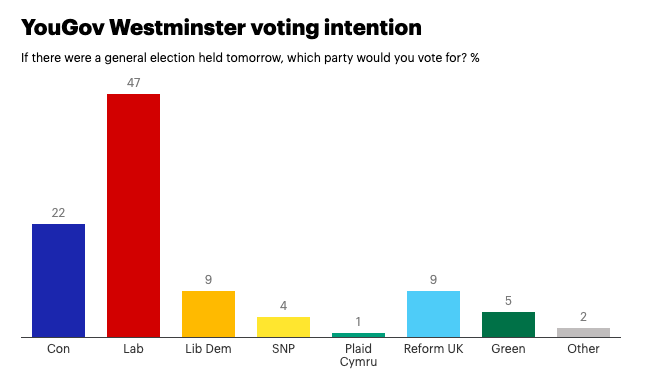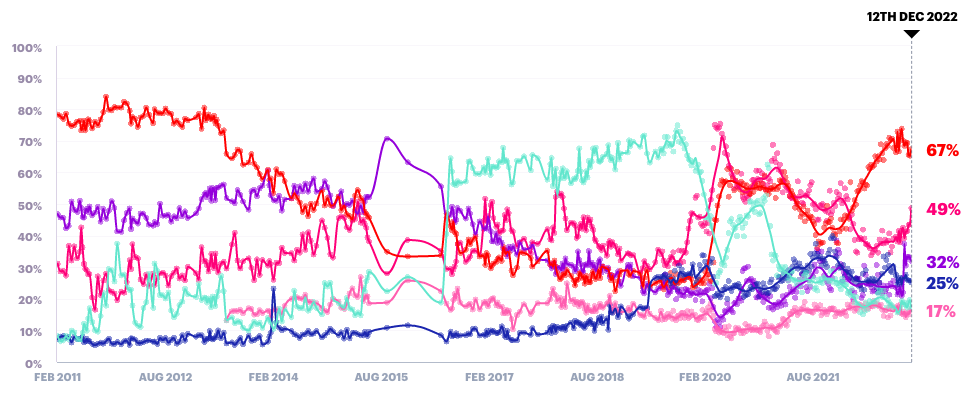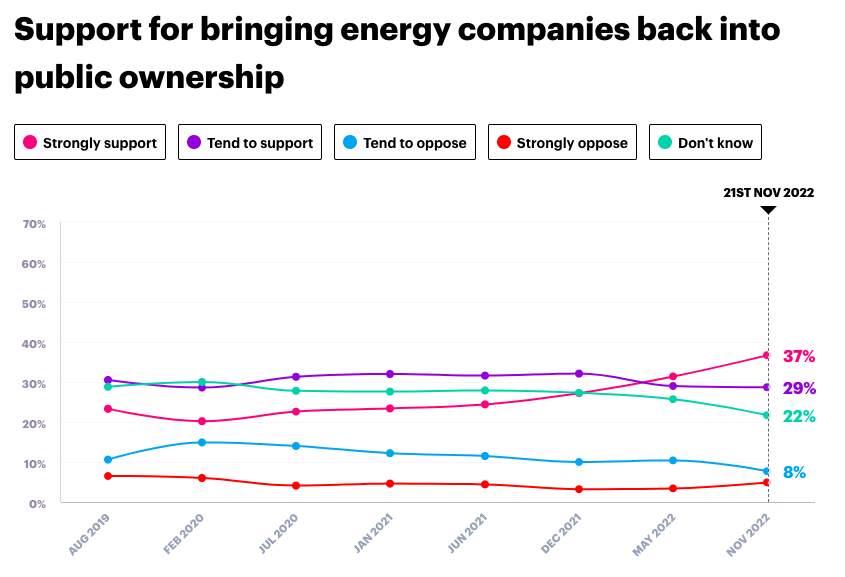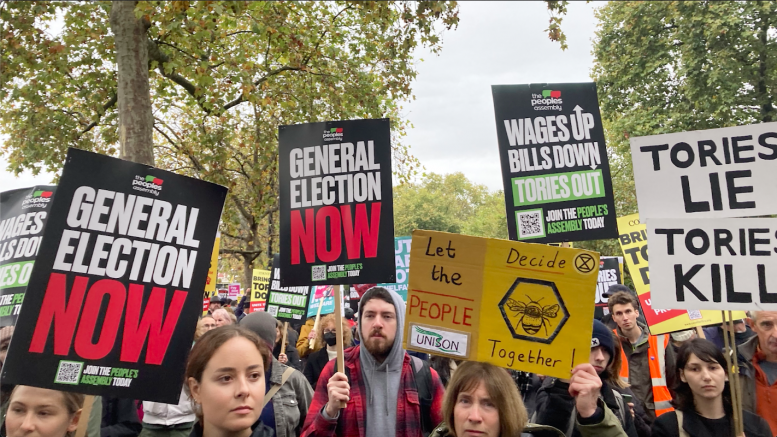Many young people have lost confidence in the current UK government, and the demand for an immediate general election is echoing well into the holiday season.
Raging inflation rates mixed with constant industrial action leaves the nation questioning the Conservative Party’s competency.
PM Rishi Sunak, although still relatively new to the job, has not delivered the approval turn-around that the party was expecting. This has left many thinking that there will be a nation-wide Labour sweep in the next general election.
A YouGov survey shows that 47% of voters intend to support Labour, more than double the Conservative support level of 22%.

Abbiey Curl, a 24-year-old student, said: “Given the ongoing chaos and controversies of the Conservative party over the last year, I believe the public confidence in the current government has decreased to a point where the public demand drastic change.”
Industrial action this week includes the unprecedented RCN nursing, National Rail, and Royal Mail strikes, which will cause major disruptions to all aspects of life leading up to the coming holidays.
All eyes are turning to Rishi Sunak to find pay-related compromise to end the disruption, yet the government maintains that pay rises demanded by unions are impossible. Even if the crisis were to be resolved, the damage done to the PM’s credibility may be irreversible.
”Even if it [strike resolution] is done, I don’t trust the government,” Isabella Sawyer, 21, said. “They’re all in it for each other, not for the people. I just don’t trust them to do the best thing for the people.”


People across the nation overwhelmingly view economic troubles as the biggest problem for the country. According to newly updated YouGov data, 67% of survey takers felt the economy was the most important issue for England, followed by health (49%), immigration/asylum (32%) and the environment (25%).
So what’s going on with the economy?
The Bank of England is expected to raise its lending rate to 3.5% from 3.0% tomorrow, continuing to stretch the wallets of Britons. The central bank’s official inflation target for the year was 2%, and the drastic off-target levels have continued to impact the whole nation.
Jeremy Hunt, Sunak’s chancellor, is celebrating the small victories by praising the market control of fuel prices in the country, but still maintains that “getting inflation down is a top priority”.
Both the government and the Bank of England have stated that they expect the current recession to continue well into next year.
Young residents have felt the recession especially hard, with many students and part-time workers not fitting the criteria for government aid. Energy prices, along with record-high inflation, have left people pinching pennies.
“Continuing to support myself on the same pay rate has been extremely difficult when the cost of living has increased so dramatically. It’s hard enough to support myself on the day-to-day, leaving me with very little to no disposable income to spend on the upcoming holidays,” Curl said.
To heat or to eat?
According to the Energy Saving Trust, the average price of electricity is 34p per kilowatt hour, up from 2021’s average of 18p/kWh. Of course, the more electricity used, the higher the bill, leaving many households cutting back.
Curl’s flat is yet another home having to make the decision between heating and eating. “We are in agreement that we do not want to have to pay the extreme bills [for heating]. It’s increasingly hard to live and function in a flat that sits around 8 degrees at night.”
“Countries around us, including Wales, have added caps and freezes on energy prices to ensure their residents don’t suffer from the energy companies’ greed,” Curl stated. “However, the English government have made no such effort despite reports of the top 7 energy companies making £150bn profit so far this year.”
Since then, the UK government has implemented an energy price cap of £3000 per year, but the measure has not been strong enough to assist enough amid other rising prices.

Bringing energy companies back into public ownership is highly supported, with 66% of survey participants either strongly or tending to support.
With 2022 quickly coming to a close, the economic turmoil facing the UK is truly a nightmare before Christmas.
Words: Cerah Handsaker | Subbing: Yana Trup


Be the first to comment on "How inflation, energy and wages are devastating young Londoners ahead of the holidays"